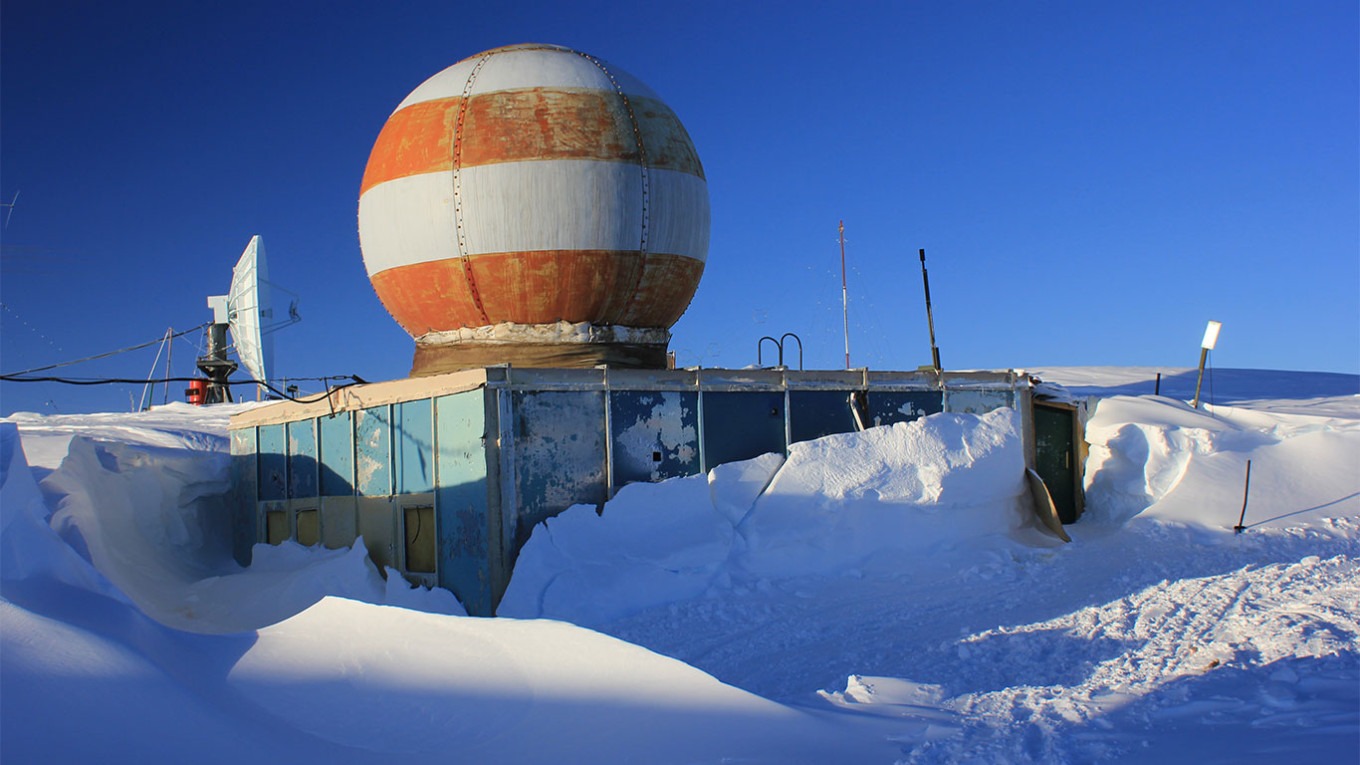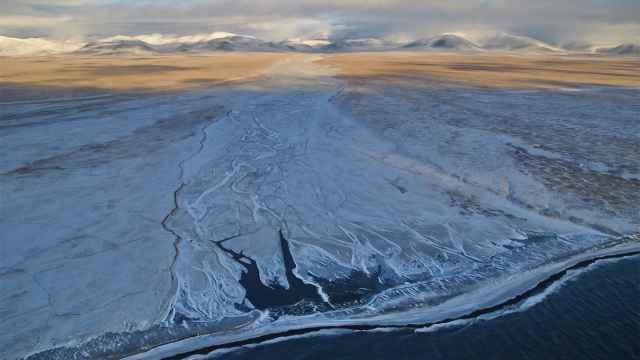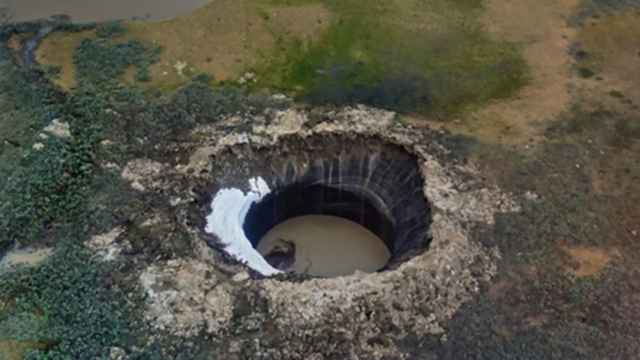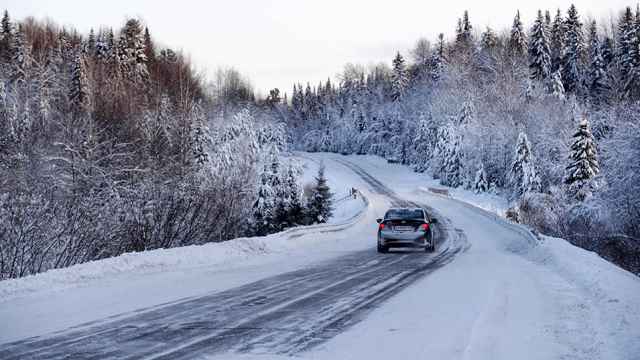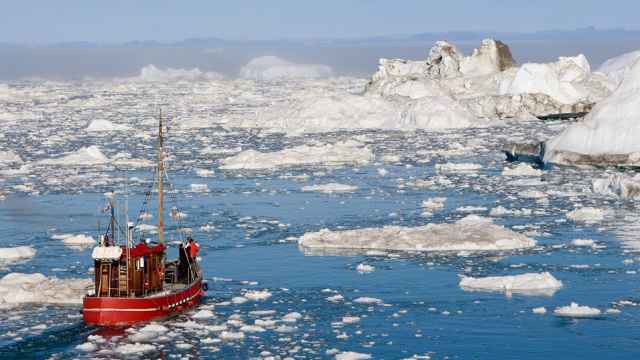Russian scientific institutions have been cut off from their Western counterparts since the invasion of Ukraine, limiting their equipment and software supplies, access to information and chances for collaboration.
The isolation of a country that is home to vast ecosystems, over 50% of the Arctic Ocean coastline and critical scientific datasets has raised concerns over global scientific cooperation on the world’s deepening climate and environmental crises.
“The world cannot do without our data, just as we cannot do without global data,” an earth scientist at a Russian institute told The Moscow Times, pointing to permafrost research as a foremost concern.
Like the other Russian researchers interviewed for this article, the scientist requested anonymity to speak candidly on a war-related topic under Russia’s wartime censorship laws.
“Half of America’s permafrost scientists are Russian. However, we also work with global databases. If access to them is prohibited from any side, it will be painful,” the scientist said.
Foreign researchers who previously visited Russia for field work have also struggled to continue critical studies after most European Union and NATO members discontinued projects with Russian institutions.
This jeopardizes research on globally significant risks such as ancient viruses frozen in permafrost, said a Russian-born researcher at a Swedish institute who identified herself as Lyubov.
“The fact that these viruses are gradually coming to the surface is a significant danger for everyone,” Lyubov said. “We must study this comprehensively and together.”
Frozen out
Since March 2022, Russian researchers across all disciplines have lost access to most foreign databases, digital libraries and scientific cloud infrastructure, according to Russia’s Education and Science Ministry.
Today, Russian scientists' most common problems include the cancellation of international projects, the inability to participate in some conferences, and challenges with obtaining visas and making international payments, Russian researchers told The Moscow Times.
It has also become more difficult for scientists affiliated with Russian institutions to have their publications accepted by international journals, with a list of “problematic” journals circulating online.
The number of publications by Russian scientists indexed by the Scopus database had steadily risen since the mid-1990s before dropping by almost a fifth in 2022, marking the first decrease in 16 years.
Journals find workarounds to avoid publishing Russian research, Lyubov said.
“They say it was challenging to find a reviewer for your article, or it was difficult to understand the research method, even though the same universities had previously submitted articles to these journals without any issues,” Lyubov said.
Some Russian scientists experience feelings of anger and misunderstanding because of these issues, a Russian climatologist told The Moscow Times.
“It feels unfair when, simply based on being Russian, you are excluded from being a co-author of an article in which you have invested a significant amount of time,” they said.
‘Last car of a departing train’
The alienation of Russian science from the West has put an end to many of its scientists’ professional dreams.
Just a few days before Russian missiles hit buildings in Kyiv in February 2022, an Arctic researcher who identified herself as Anastasiya was notified that she was selected to do a half-year funded research project in the U.K. But in a matter of days, organizers told her the program was canceled.
Similarly, Anastasiya’s acceptance to a summer school in Norway’s Svalbard was revoked in early March 2022, and she was not admitted to the school in 2023.
“I tried to write something like, ‘I understand, but let scientists unite, it's better for science’,” Anastasiya told The Moscow Times. “They apologized and said that the Norwegian government has decided to terminate all collaborations with Russia."
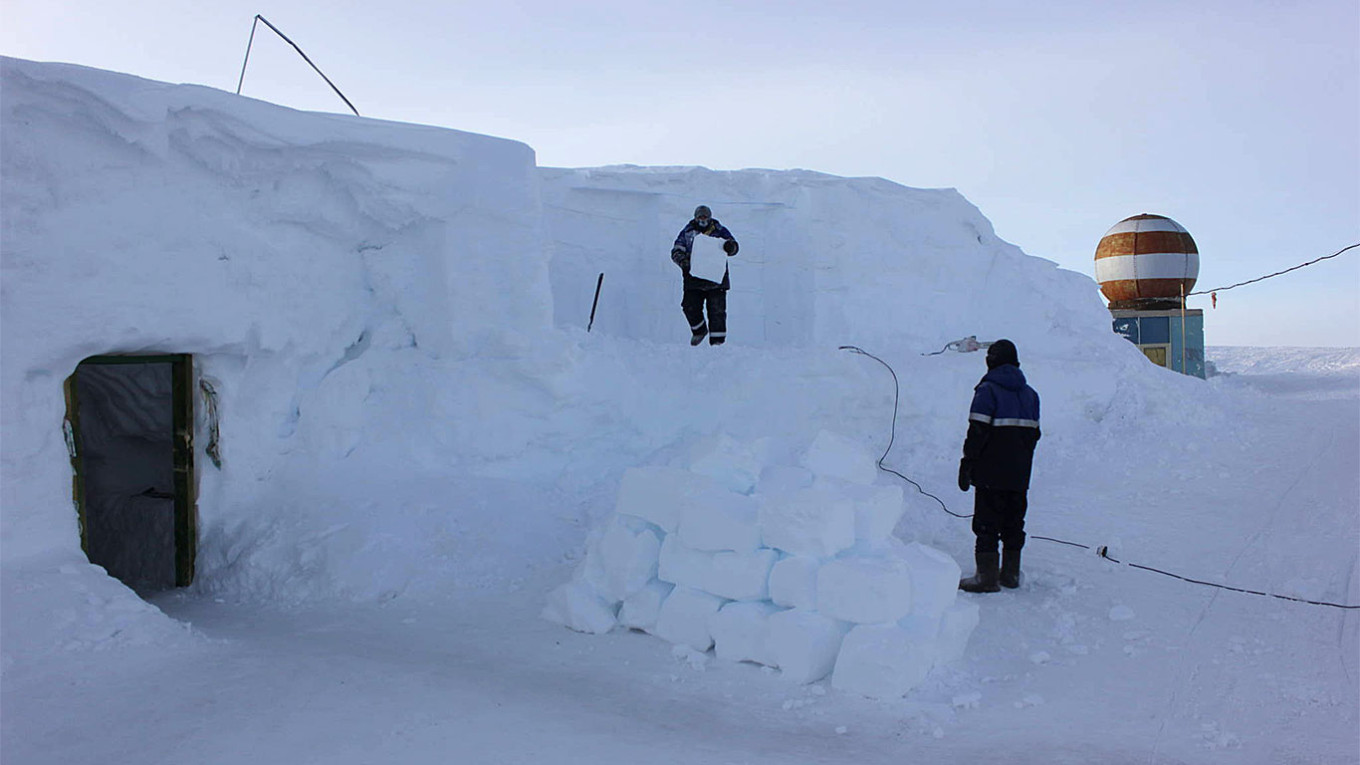
Many scientists have emigrated, accelerating Russia’s existing “brain drain.”
Lyubov was offered a job at a Swedish institute a few months before the invasion prompted thousands of Russians to look for a way to emigrate. She said the experience felt like “jumping into the last car of a departing train.”
“I found myself in a very privileged position compared to other Russians,” Lyubov said.
She noted that many of her colleagues in Russia hope to find positions abroad because things at home look “quite bleak.”
“People don't see a purpose,” she said. “If there was previously some funding from joint projects related to the Arctic and Antarctica, the Barents Sea or permafrost, now there's just a kind of stagnation.”
Despite her affiliation with a Swedish institute, Lyubov’s collaborations with Russia-based colleagues face an uncertain future.
“Russia has many outstanding specialists in materials science, solid-state physics and crystallography,” Lyubov said. “I have a relatively small institute [in Sweden], and unfortunately, there are no such specialists here.”
Sovereign science
In Russia, researchers are adapting to the new reality by increasingly collaborating with colleagues from BRICS countries, using Kazakhstan bank cards for international transactions and downloading data from Western institutes while outside Russia.
But for some, potential restrictions from their own government are a bigger concern than anything the West can impose.
“I think that if there are any restrictions, they will come from the Russian side rather than from abroad,” the earth scientist said. “[Russian authorities] might prohibit sending articles to foreign journals. Anything is possible.”
They also pointed to the risks of developing science in isolation under patriotic slogans trumpeted by the Kremlin.
“Under the guise of 'sovereign science,' you can bury half of climate science, half of biogeochemistry and ecology, sprinkle some trendy denialism on top, and there you go — we are in serious trouble,” they said.
Moreover, non-military science in Russia is chronically underfunded and stands to be deprioritized even more amid record military spending.
“I personally feel isolation only at the moment when I say that the way people work in science in Russia is not acceptable — we have a low average level of scientific culture,” the earth scientist said.
Russian authorities have also started to collect data on academics in contact with foreigners and jail scientists suspected of treason, sending a chill through the community.
Signs of a thaw?
If Russian science remains closed off for decades, some processes that scientists study will be less understandable to the outside world, especially in the fields where Russia holds unique expertise, a Russian-born assistant professor at an American university said.
“A significant loss will be in the areas that represent Russia's strengths, such as truly untouched forests and natural territories ... or the northern languages,” they told The Moscow Times. “The world will live on, but become poorer.”
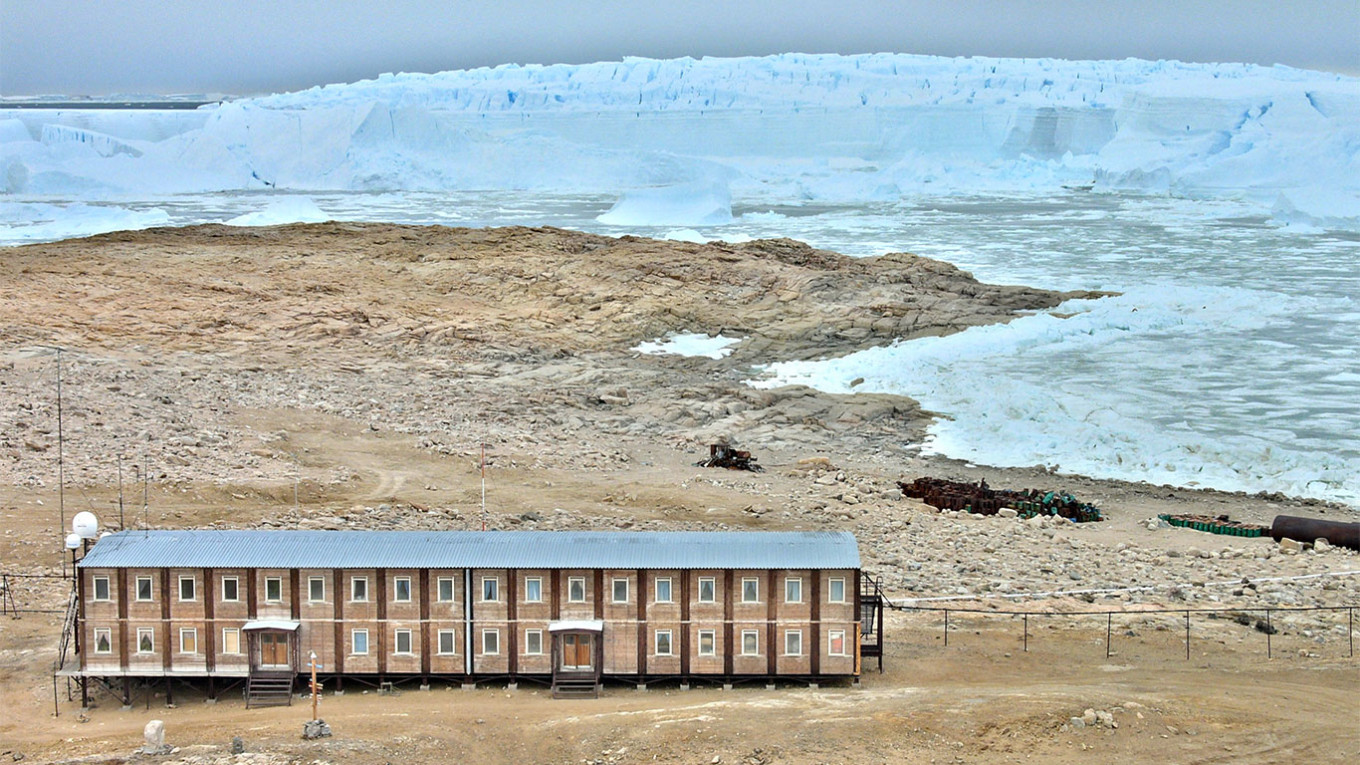
Early signs of a thaw in relations between Russia and other Arctic states emerged in September, when members of the Arctic Council agreed to resume its working groups’ activities based on written communication after suspending them in March 2022.
A partial restart of scientific exchange — as well as restrictions for cooperation mostly occurring on an institutional, not interpersonal, level — offers cautious hope that vital cooperation will not cease to exist.
The assistant professor said their collaboration with Finnish and Canadian scientists has been able to continue despite the sanctions.
“There were essentially no issues with them — on the contrary, they expressed a lot of sympathy,” they said.
“On a personal level, those with whom we have collaborated continue to communicate and support us,” the Russian climatologist said.
Jean-Michel Claverie, a virologist and emeritus professor at the Aix-Marseille University School of Medicine, said research into permafrost, which is crucial to understanding climate change, cannot progress without Russian scientists — as Russia holds the largest share of the world's permafrost.
“During the previous Cold War, the Pugwash movement created by physicists did a lot to maintain a minimal level of communication between the adversaries,” Claverie told The Moscow Times. “Maybe it is time to restart such an initiative.”
As for Russians, many simply hope that better days will come — even if it takes a long time.
“I hope that the war will end as soon as possible, and we will gradually emerge from this,” Lyubov said. “And Russian researchers will not be afraid to say that they are scientists from Russia.”
A Message from The Moscow Times:
Dear readers,
We are facing unprecedented challenges. Russia's Prosecutor General's Office has designated The Moscow Times as an "undesirable" organization, criminalizing our work and putting our staff at risk of prosecution. This follows our earlier unjust labeling as a "foreign agent."
These actions are direct attempts to silence independent journalism in Russia. The authorities claim our work "discredits the decisions of the Russian leadership." We see things differently: we strive to provide accurate, unbiased reporting on Russia.
We, the journalists of The Moscow Times, refuse to be silenced. But to continue our work, we need your help.
Your support, no matter how small, makes a world of difference. If you can, please support us monthly starting from just $2. It's quick to set up, and every contribution makes a significant impact.
By supporting The Moscow Times, you're defending open, independent journalism in the face of repression. Thank you for standing with us.
Remind me later.


